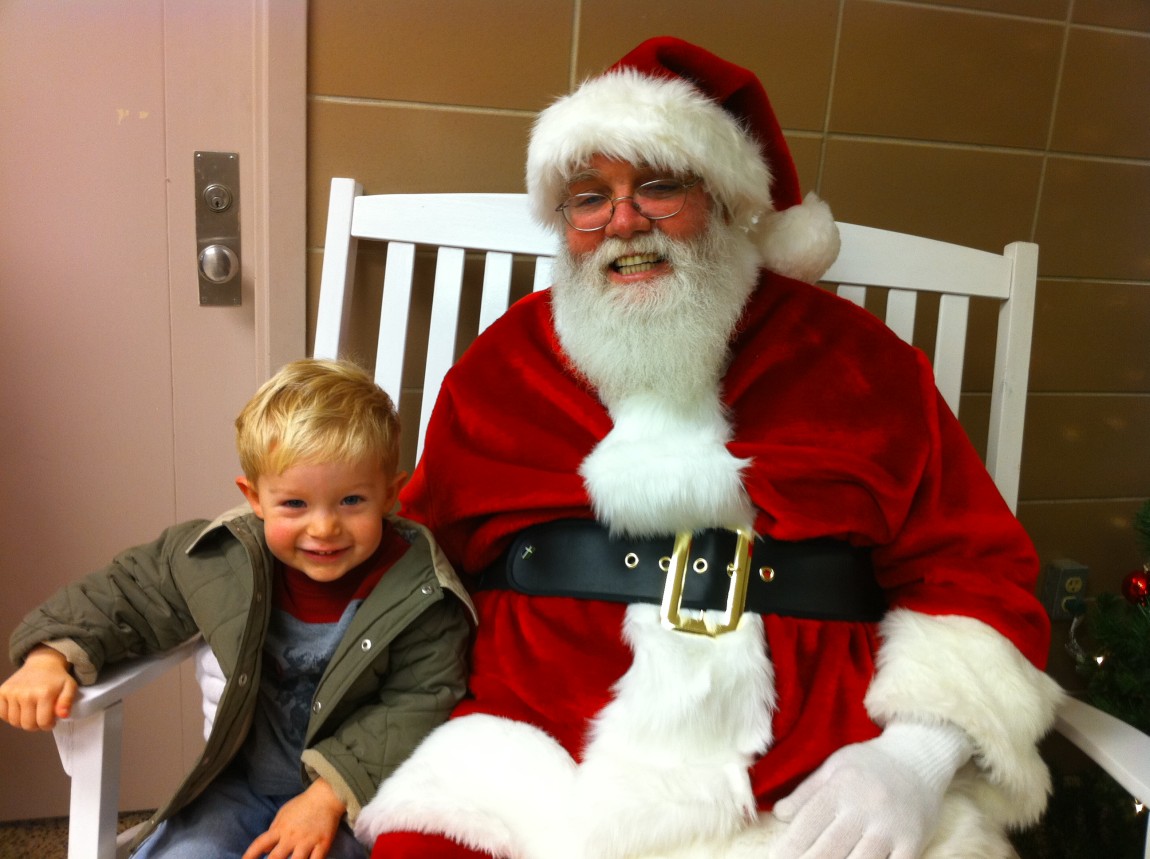Several readers have asked: In light of your view of not lying to kids, what do you tell your kids about Santa?
Many of these question come in light of my article No Lies/No Slang: How to Raise Healthy Kids that Make Grandparents Uncomfortable.
Before I answer the question, I want to make two caveats:
1. I will tell you what we do, but I’m not saying we are right or that everyone should do what we do.
2. There is not only one way to handle the issue.
When it comes to Santa, many parents feel a tension between a desire to tell our children the truth and the joy/fun/usefulness of fantasy, specifically for children.
Both are noble goals. No one would doubt the importance of our kids trusting us and believing they always have a voice of truth when they turn to us. And, as bedtime often reveals to us, the use of stories and fables can be powerful tools to build a child’s joy and imagination.
Yet when it comes to Santa, these two goals feel at odds.
What is a parent to do?
Some tell their kids the truth from the beginning. Straight-up, no pretending, they tell their kids Santa doesn’t exist and many times they take pride when their 4–year-old is breaking hearts at preschool by mimicking their parents truth.
Others play the Christmas game and never come clean. Years later they are still pretending and the kids play along.
Both approaches have strengths and weaknesses and many people on both sides are dogmatic about their way.
(Chances are I will get a phone call because of this blog post in which someone will say I just said it was okay to lie.)
Years ago when I first came to Community Bible Church I was preaching in December when I told a story about a child coming to the realization Santa wasn’t real. I never considered the story causing a problem. Since we have children’s worship, most kids weren’t in adult worship. Yet people ripped me. Someone questioned whether or not I was mature enough to preach. All of this because I told the truth.
Whatever a family decides, I think it is important for the parents to make a conscious decision and not apologize for it. No matter what your friends or your parents or your in-laws think, your children are your responsibility and you, and you alone, should make the decision of how to raise them.
As for us, we have two guiding principles:
1. We will not lie to our children.
2. We do not have to tell them everything we know.
Because we do not lie to our children, we do not encourage the Santa story. We don’t have them make a list for Santa or write a letter to Santa or leave cookies by the tree. We do nothing to initiate the concept of Santa.
Yet, living in a Santa-culture, our kids have made assumptions about him. At times they believe he might be real.
I do not find it my responsibility to shatter this illusion.
I think of it in terms of one my favorite clips from The West Wing:
Oliver Babish, the White House Senior Counsel, asked Press Secretary CJ Cregg, “Do you know what time it is?” She answers, “Yes, it’s 5 past noon.” Babish then says, “I would like for you to get out of the habit of doing that…answering more than what is asked.”
It’s true for press secretaries and it’s true for parents.
I have a responsibility to answer the question my children asks, but I do not have a responsibility to expound beyond that question.
If my child asks me, “Will Santa get me that for Christmas?” I might answer, “You might get that for Christmas” or “I don’t see that happening.” I answer what seems to be the true intent of the question, but no more. Of course at any time in which my child wants to ask, “Daddy, is Santa real?” I will eventually answer the question. I will not lie to him, but I will not go out of my way to answer it until he really wants to know. When he first asks, I simply respond, “what do you think?” So far, he has never pressed me to truly tell him.
Do my kids believe Santa is real? To be honest, I’m not sure. In the past they haven’t, but being in elementary school around other kids and teachers who are talking about Santa, at times they think he is. They go back and forth and that’s okay. They haven’t learned it from me, but I won’t go out of my way to shatter the illusion.
One thing I will do—I will tell them the truth. When they are ready or if they really want to know, they can always come to me and get honesty.
It’s not the only way to handle it. It may not be the best way. But it’s our way. And in case you are wondering, we are happy with our decision, thank you.
How do you handle the Santa issue with your children?




4 Responses to What Do You Tell Your Kids About Santa? (Reader’s Question)